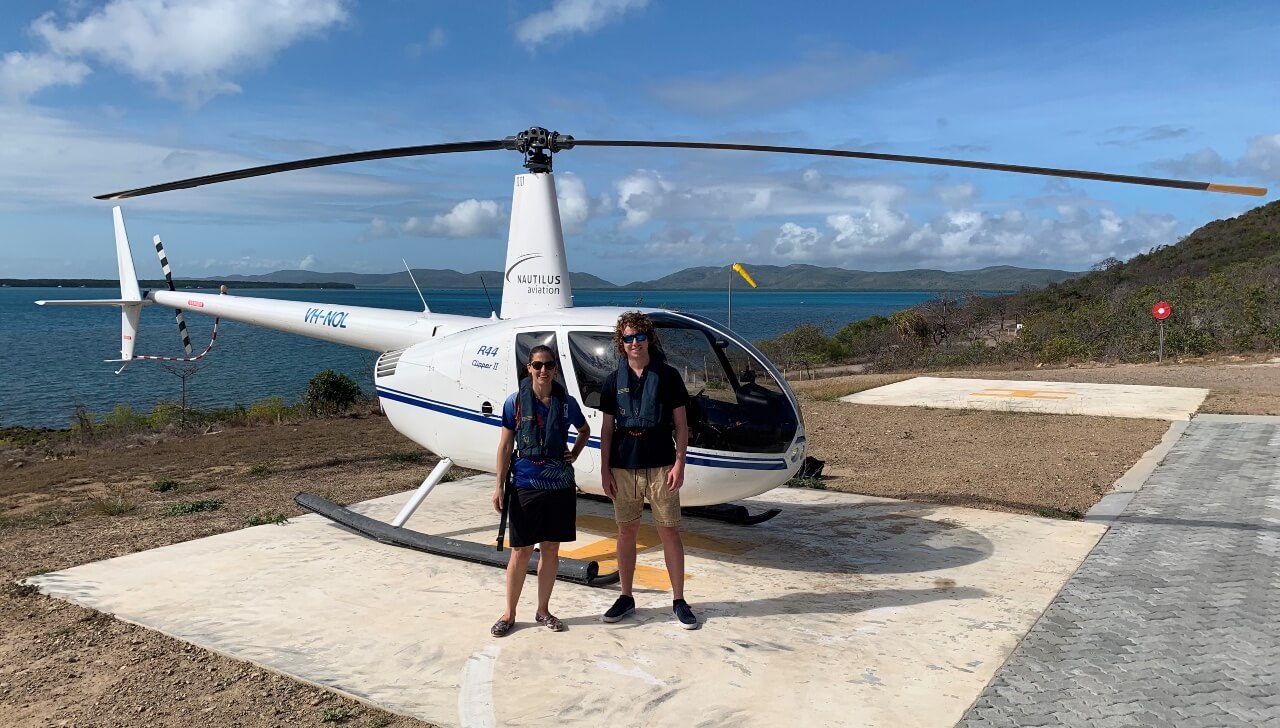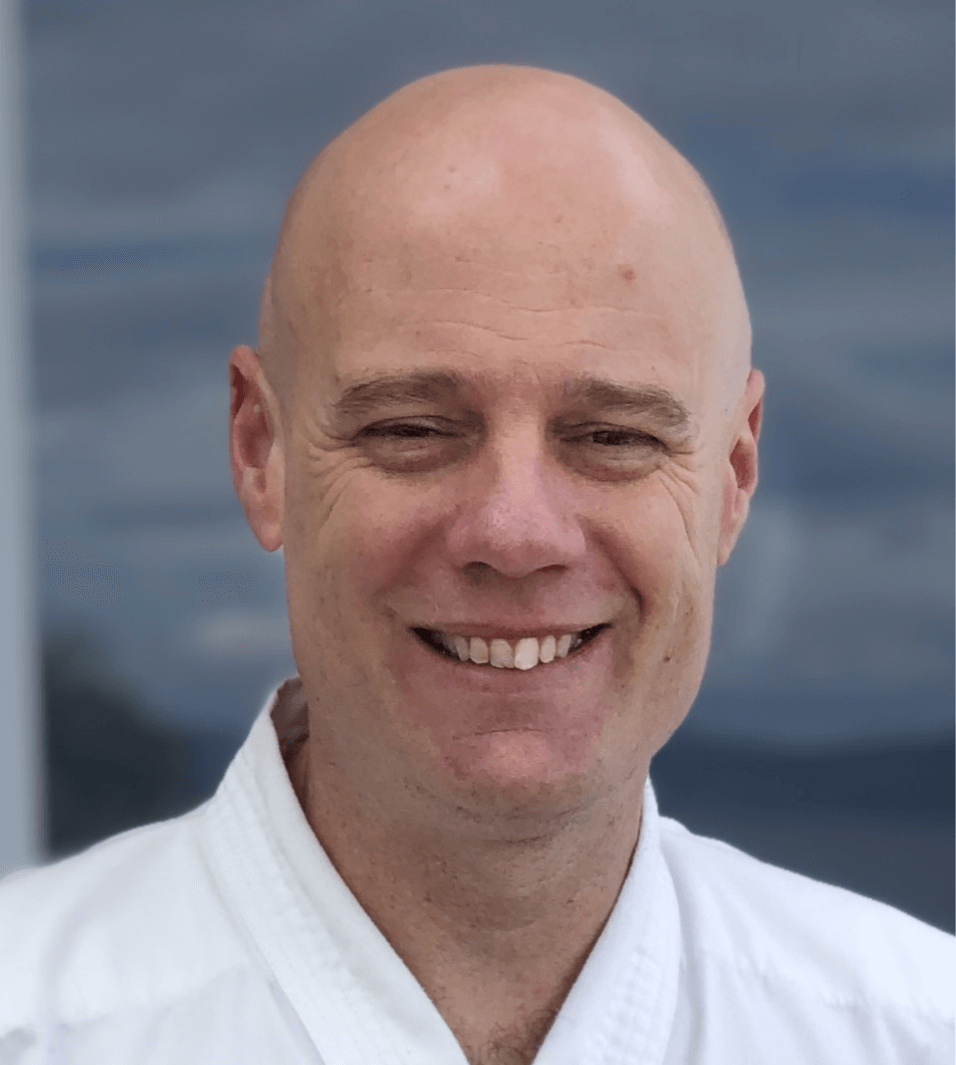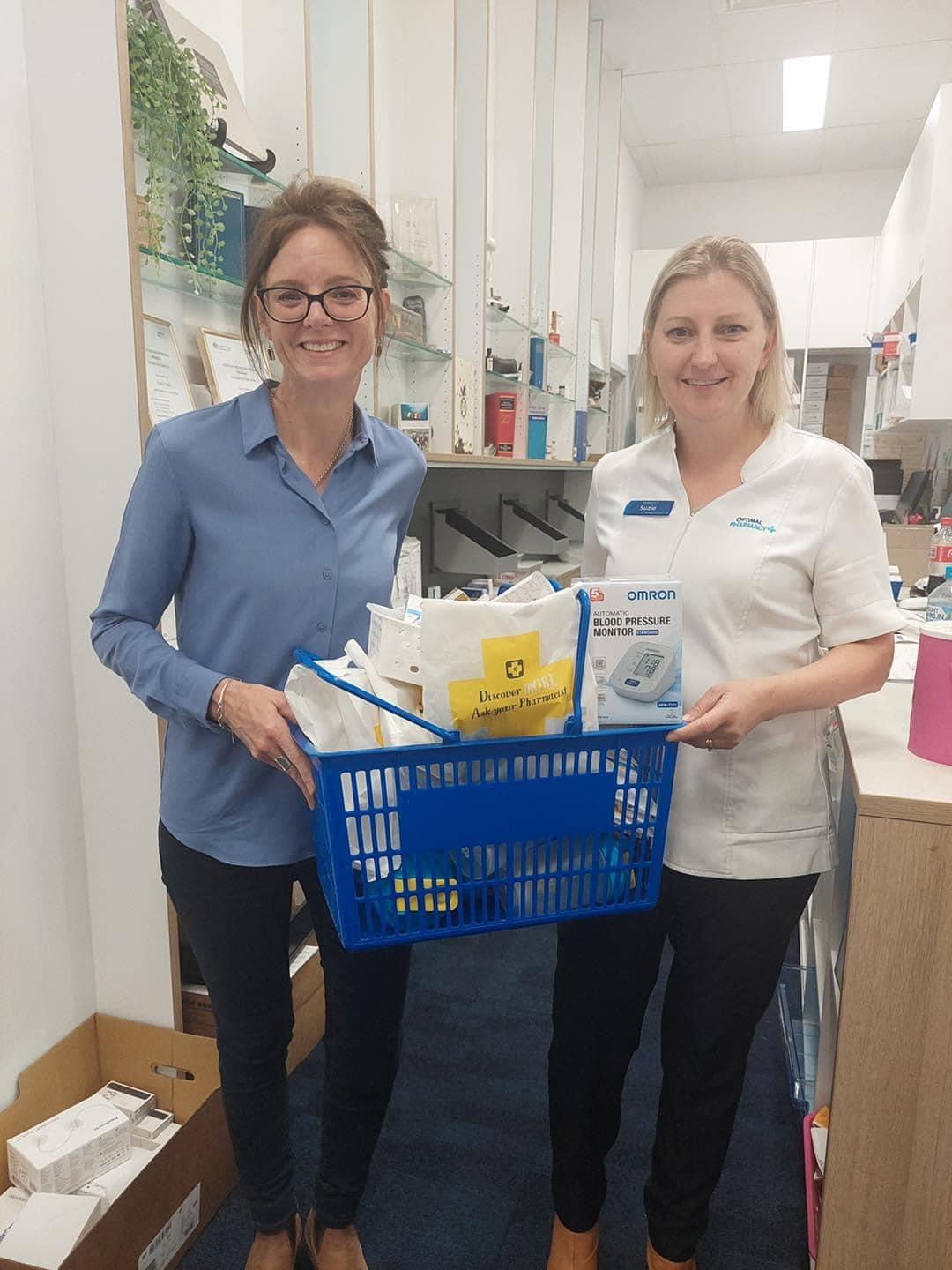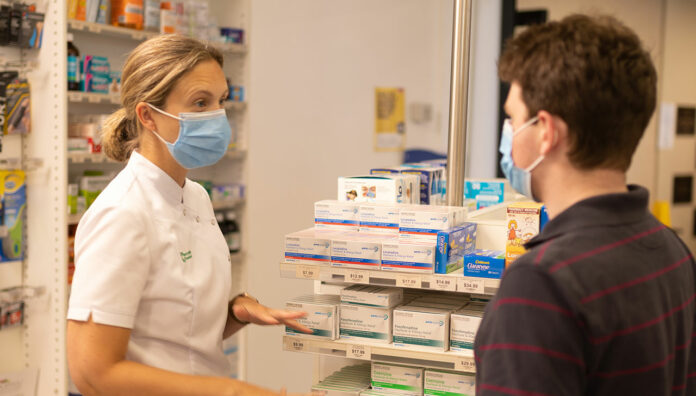The recent floods in eastern Australia combined with the general practitioner (GP) shortage crisis in rural and remote areas has highlighted why pharmacists should be able to dispense full Pharmaceutical Benefits Scheme (PBS) quantities of medicines to patients in need.
On 1 July the number of medicines eligible for PBS continued dispensing shrunk from 906 to 168. AP spoke to three pharmacists who share how these cutbacks are hurting patients when they are at their most vulnerable.
QLD: Stranded up north
Carli Berrill MPS, a pharmacist based in Queensland’s Thursday Island, said accessing medicines can be difficult in the far north, with an average 2-3 week wait to see a doctor.
‘Because of how remote we are, a lot of our patients travel frequently for specialist appointments and even between islands for family or cultural reasons,’ she said.
Recently, one of Ms Berrill’s patients ran out of one of her medicines and asked if she could help with supply. The dose administration aid (DAA) patient, who was in Cairns at the time, was taking cardiac, gout, diabetes, and blood pressure medicines, and had no scripts on file.

‘The patient is an elderly Torres Strait Islander lady and English is her second language,’ Ms Berrill said.
‘She tried to get a [3 day] emergency supply from a few pharmacies, but most pharmacies say no up here, especially for [DAA] patients because they’re on so many medicines.’
Ms Berrill tried to get the only doctor working at the local health service that day to provide a prescription, but he was too busy tending to other patients to help.
‘Eventually, the patient ended up sitting down in a pharmacy in Cairns for 5 hours until I could get onto another doctor here to write a script, which was sent to the pharmacy down there.’
If it was still possible to dispense all regular medicines in an emergency via continued dispensing, this situation could have been avoided.
‘I was calling the health centre every half an hour, and the patient was calling me every half an hour as well. It’s just not sustainable,’ she said.
‘In remote areas, having continued supply would take that pressure off. At the moment it’s an impossible situation, and patients and pharmacists are stuck in the middle.’
In this case, the patient was quite health literate and understood the importance of taking her medicine. However, Ms Berrill fears there are many more patients who slip through the cracks.
‘Most people probably think, “I can’t get my medicine, so I’m not going to take it”.’
TAS: Rural GP shortages risk mental health escalation
In the rural town of Geeveston in Tasmania’s south, pharmacy owner Ian Magill MPS said there are always instances when patients need better access to medicines. The only medical practice in town is open 4 days per week, and sometimes the doctor is not even there.
‘Patients turn up without prescriptions and we can’t provide a continued supply of medicines,’ he said.

Just a few days ago, a young female patient came into Mr Magill’s pharmacy desperate for antidepressant medicines after her supply ran out 3 days prior. The patient, who felt physically ill and was experiencing extreme anxiety, was forced to leave work early.
‘We took her blood pressure, which was fine, but her heart rate was up at around 98 beats per minute,’ he said. ‘She couldn’t get in to see the doctor for a week and a half and we couldn’t supply the antidepressants through continued dispensing.’
This left the patient with few options. She could go to the emergency department (ED), but in a rural setting, that’s a fair way to travel. There are also online doctors who can prescribe medicines, but at a cost of $50 with no Medicare rebate, this option comes with equity of access issues.
Mr Magill was able to dispense 3 days supply of the medicine to the patient under emergency supply regulations. Luckily, she was able to afford the online doctor fee and access a month’s supply of antidepressants.
‘Her anxiety has stopped, her heart rate is back to normal and she is back to work,’ said Mr Magill. ‘If she couldn’t afford to pay the $50, she may have ended up in ED.’
NSW: Water, water everywhere, but not a script in sight
Heavy rain in central west NSW collected in an already-full river system last week, spilling the Wyangala Dam at record rates across parts of Cowra, Gooloogong, Canowindra, Derriwong, and Eugowra.
Following the flash flooding, Susan Nash MPS, who manages Optimal Pharmacy Plus Cowra and lives in Canowindra said most of her pharmacists were unable to make it to work.
Makeshift dormitories were set up at Eugowra Showgrounds to house displaced residents, with Ms Nash volunteering in the kitchen. It was here that she met a woman from Resilience NSW, with Cabonne Council organising for Ms Nash to be advertised as a pharmacist at the Showgrounds through Resilience.

‘These people have lost their businesses, houses, cars, servers, and mobiles,’ she says.
‘So many have told me they stopped taking their medicines because it was all too hard to organise.’
Continued dispensing arrangements have allowed Ms Nash to help at least 20 patients access their medicines, including one patient who needed blood pressure medication.
‘With all the extra stress, he stopped taking his medicines. He had been living in Bateau Bay and moved to Eugowra, but hadn’t found himself a doctor yet,’ she said.
However, her hands are tied when it comes to helping some patients.
‘There would be less ringing around to busy doctors if we had access to a wider range of medicines through continued dispensing,’ she said.
Some states have more options, if the patient can afford it
Late last week, PSA and NSW pharmacists were informed of an extension and expansion of a special temporary authority to help patients access medicines in flood affected areas. This effectively means most medicines which have been removed from the PBS Continued Medicine initiative can be supplied as private items in quantities up to a month’s supply when a GP isn’t available.
While due to expire on 25 November 2022, the special authority has been extended again until 1 February 2023.
NSW Health has also increased the number of days of a medicine that can be supplied under the longstanding emergency supply provisions up to 7 days (previously 3 days).
In Victoria, PHEO#2 and PHEO#22 provide pharmacists a similar authority to supply up to a month’s supply of most medicines no longer eligible for PBS Continued Dispensing as private prescriptions.
However, as non-PBS supplies, many high-cost medicines will remain out of reach for many people that need them.
PSA is continuing calls to reinstate full PBS Continued Dispensing to ensure patients can get access to their regular life-saving medicines at the times they need them the most.



 John Jones MPS, pharmacist immuniser and owner of My Community Pharmacy Shortland in Newcastle, NSW[/caption]
John Jones MPS, pharmacist immuniser and owner of My Community Pharmacy Shortland in Newcastle, NSW[/caption]


 Debbie Rigby FPS explaining how to correctly use different inhaler devices[/caption]
Debbie Rigby FPS explaining how to correctly use different inhaler devices[/caption]




 Professor Sepehr Shakib[/caption]
Professor Sepehr Shakib[/caption]

 Lee McLennan MPS[/caption]
Lee McLennan MPS[/caption]
 Dr Natalie Soulsby FPS, Adv Prac Pharm[/caption]
Dr Natalie Soulsby FPS, Adv Prac Pharm[/caption]
 Joanne Gross MPS[/caption]
Joanne Gross MPS[/caption]





